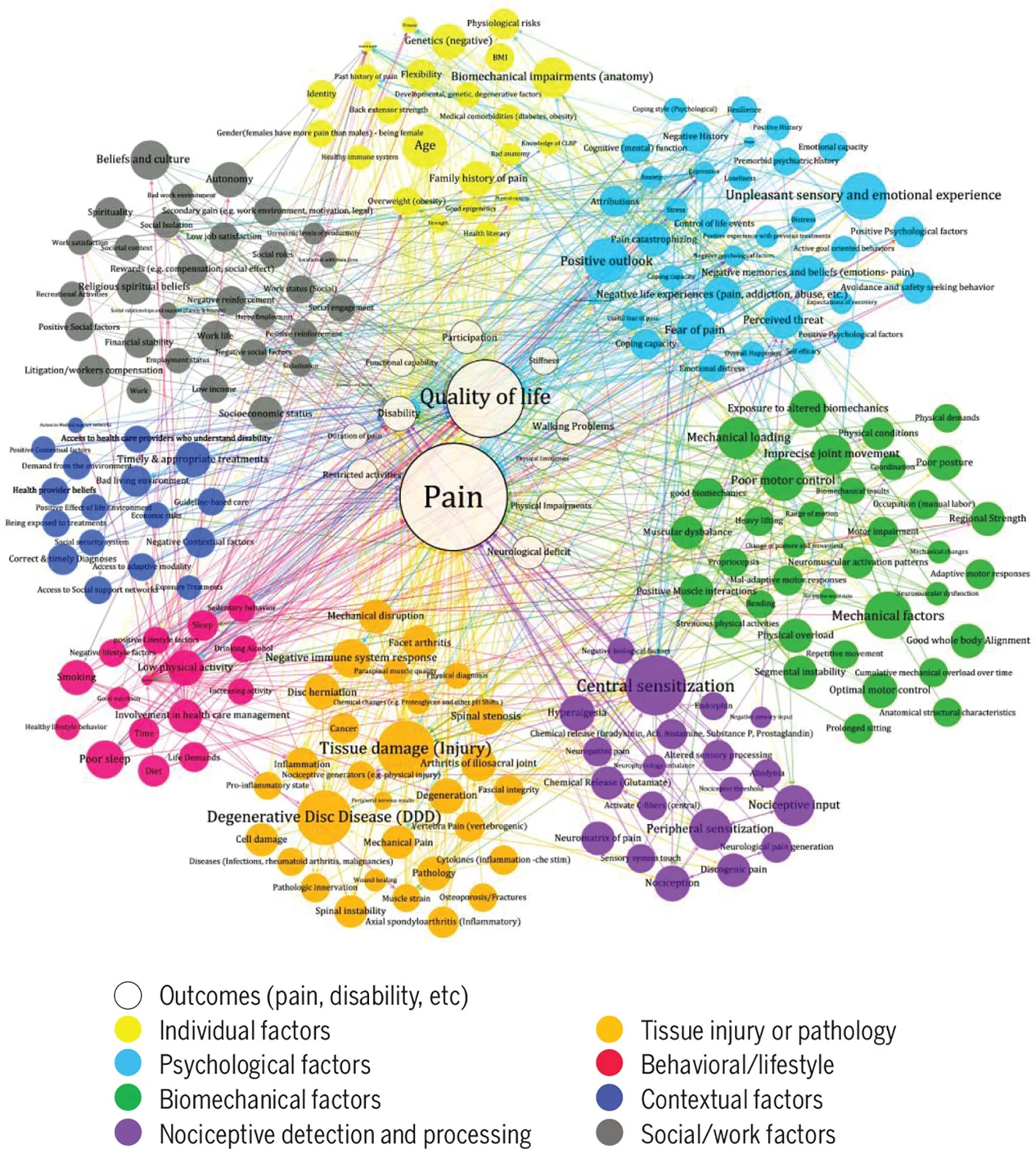The Health Factors Affecting Your Pain and Injury Recovery.
Did you know that there is so much more that goes into pain management and recovery than just going to your physio/chiro and just doing your rehab exercises?
Did you know that getting a massage, adjustment or exercise program (to “correct” your posture or movement) is just one part of the picture?
In fact, there is so much more that can affect how you experience pain, heal and recover from an injury, and just overall health.
A very famous research paper “Can Biomechanics Research Lead to More Effective Treatment of Low Back Pain? A Point-Counterpoint Debate” (link here) offers a lot of insight into how low back pain isn’t always just about getting a massage, adjustment, or about mechanical factors (ex. how you move or activate muscles). The paper explains how pain and injuries are often very complex, has multiple factors, and requires a detailed understanding of you, the patient, as a whole. And interestingly, it doesn’t just apply for the low back - it applies to pain and most musculoskeletal condition in general.
Here are a few different factors to consider:
Poor Nutrition
Your body needs raw materials—like protein—to repair damaged tissues. A diet high in processed foods and low in nutrients can delay healing, increase systemic inflammation, and even affect your mood, which in turn can influence how you perceive pain.
Inadequate Sleep
Sleep is when your body does most of its repair work. Poor sleep doesn’t just leave you tired—it increases sensitivity to pain, impairs tissue recovery, and affects decision-making (like whether or not to move or exercise).
Fear Avoidance
This is when someone avoids movement or activity due to fear of pain or re-injury. It’s common, but unfortunately, it can backfire. Avoiding movement often leads to deconditioning, increased stiffness, and a stronger sense of threat around the injured area—heightening the pain experience.
Co-Morbidities
Conditions like metabolic syndrome (which includes high blood pressure, high blood sugar, excess abdominal fat, and poor lipid profiles) aren’t just cardiovascular risk factors—they’re also inflammatory and negatively affect blood supply, which in turn affects healing. Chronic inflammation makes recovery more complex and can turn what would’ve been a short-term injury into something longer-lasting.
Lifestyle Habits: Alcohol and Smoking
Both alcohol and smoking impair circulation, decrease oxygen delivery to tissues, and increase systemic inflammation. Smoking in particular reduces collagen production and impairs tendon and bone healing. Regular alcohol use can also disrupt sleep and hormone balance, both of which are key for recovery.
Bottom line:
Each of these factors can amplify pain signals and slow tissue recovery. The more boxes you tick off, the more complicated and prolonged your healing process might be. That’s why addressing pain or injury often requires a holistic approach—not just treating the body part, but supporting the whole person.
Struggling with pain or an injury that just won’t go away?
It might be time to look beyond the surface. Whether you're dealing with a recent injury or nagging discomfort that’s holding you back, we can help. If you don’t know where to start OR want to give the gift of exercising (or rehab) to someone in need - we are currently offering a FREE 30 MIN DISCOVERY CALL via here.

